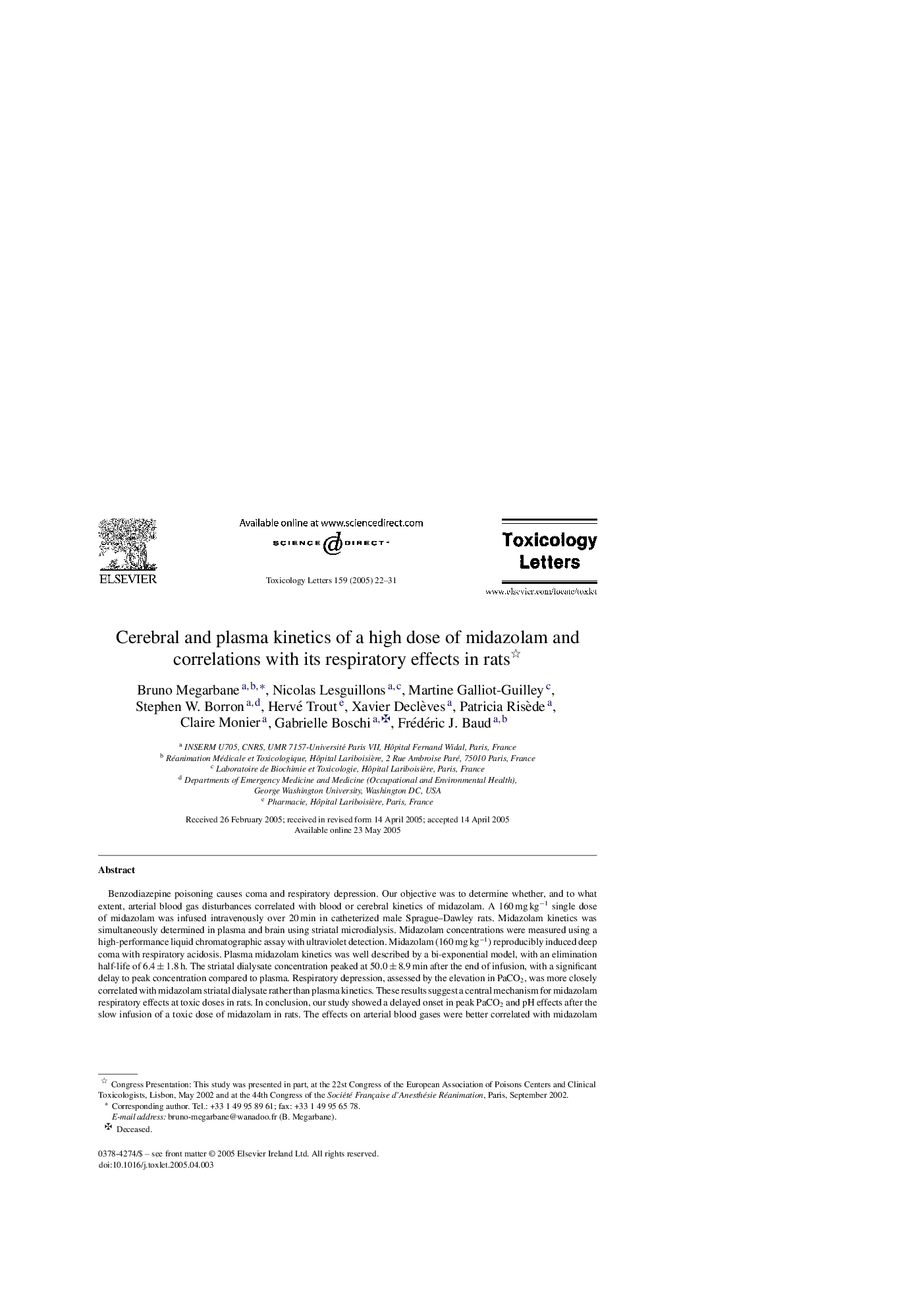| Article ID | Journal | Published Year | Pages | File Type |
|---|---|---|---|---|
| 9037417 | Toxicology Letters | 2005 | 10 Pages |
Abstract
Benzodiazepine poisoning causes coma and respiratory depression. Our objective was to determine whether, and to what extent, arterial blood gas disturbances correlated with blood or cerebral kinetics of midazolam. A 160 mg kgâ1 single dose of midazolam was infused intravenously over 20 min in catheterized male Sprague-Dawley rats. Midazolam kinetics was simultaneously determined in plasma and brain using striatal microdialysis. Midazolam concentrations were measured using a high-performance liquid chromatographic assay with ultraviolet detection. Midazolam (160 mg kgâ1) reproducibly induced deep coma with respiratory acidosis. Plasma midazolam kinetics was well described by a bi-exponential model, with an elimination half-life of 6.4 ± 1.8 h. The striatal dialysate concentration peaked at 50.0 ± 8.9 min after the end of infusion, with a significant delay to peak concentration compared to plasma. Respiratory depression, assessed by the elevation in PaCO2, was more closely correlated with midazolam striatal dialysate rather than plasma kinetics. These results suggest a central mechanism for midazolam respiratory effects at toxic doses in rats. In conclusion, our study showed a delayed onset in peak PaCO2 and pH effects after the slow infusion of a toxic dose of midazolam in rats. The effects on arterial blood gases were better correlated with midazolam striatal concentrations than with plasma concentrations. This study may contribute to better understanding of benzodiazepine-induced respiratory depression in poisonings.
Keywords
Related Topics
Life Sciences
Environmental Science
Health, Toxicology and Mutagenesis
Authors
Bruno Megarbane, Nicolas Lesguillons, Martine Galliot-Guilley, Stephen W. Borron, Hervé Trout, Xavier Declèves, Patricia Risède, Claire Monier, Gabrielle Boschi, Frédéric J. Baud,
